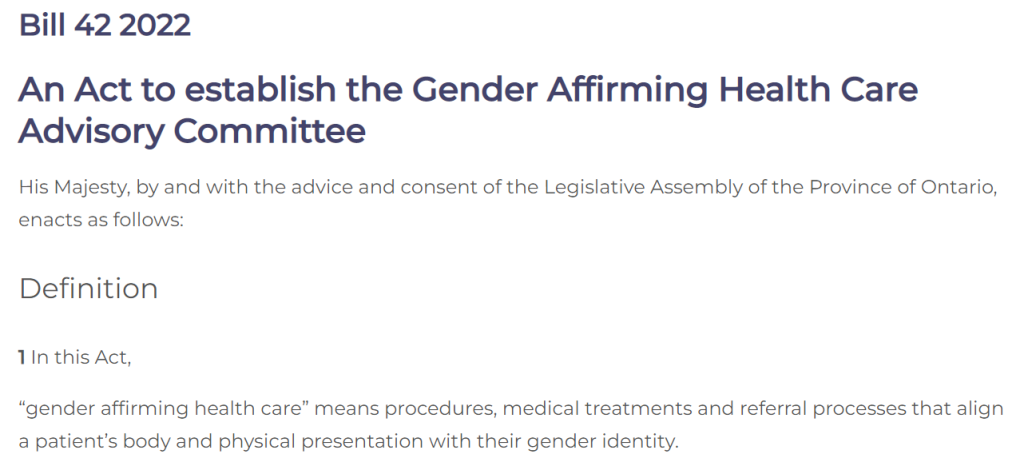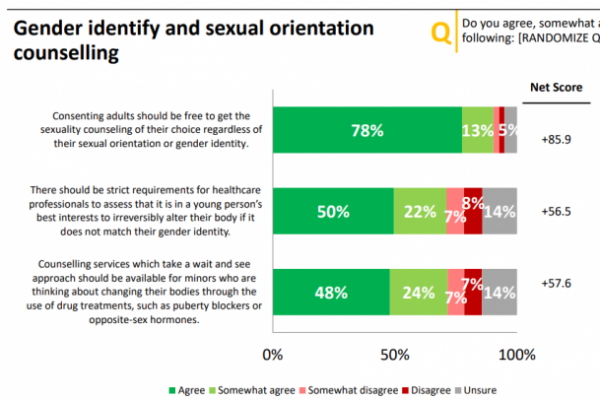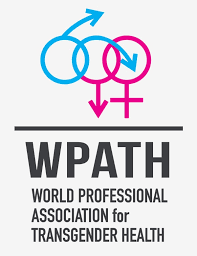
RE: Bill 42 – Gender Affirming Health Care Advisory Committee Act, 2022
We are writing to you as a group of concerned Ontario parents about Bill 42, the Gender Affirming Health Care Advisory Committee Act. We’re concerned that this Bill is poorly understood in terms of its implications for children and young people in this province who, along with their parents, are making extremely difficult medical decisions. In our view, Bill 42 is a flawed proposal that should be rejected. The Bill seeks to entrench in law a model of care for gender-related distress that is now being rejected around the world as harmful.
The bill calls for the creation of a committee of representatives of various groups affected by gender medicine. The problem with this structure is that while it will bring “lived experience” to the committee, it will bring only a small part of the experience that should be relevant.
Development of treatment guidelines in healthcare needs to take into account all relevant lived experiences, which can only be done through systematic research that is independent of any political agenda. Members of the committee will tend to be recruited from people active in organizations working with the 2SLGBTQ+ community. This means that their lived experiences will align with the political agendas of these organization.
While the concerns of people who currently identify as transgender of course need to be heard, there are other important views to consider. For example, there is a large cohort of people who experience gender distress as children but found that it resolved without the need to transition. Additionally, there is a rapidly growing group of detransitioners who have found that gender affirming care harmed their physical and mental health. Many gay people also experience distress they associate with their gender while young, until they are able to understand their sexuality, with the vast majority of them “outgrowing” their gender distress. We are also very concerned about children and young people with co-occurring mental health conditions such as autism, ADHD, anxiety and trauma, because under an “affirmation” model of care, the relationship between these conditions and a child’s gender-related distress is not being properly assessed.
The normal process for development of treatment guidelines in medicine begins with an independent and non-partisan systematic review of published studies. The purpose of the review is to evaluate the methodology in each study and determine whether it provides strong, weak, or no evidence for its conclusion. A systematic review process is normally led not by a doctor who actually treats the condition in question but by a specialist in research methodology. This helps ensure that the assessment process is not affected by financial conflicts of interest where doctors are asked to evaluate the procedures from which they earn their income.
The World Professional Association for Transgender Health, which the bill directs the committee to consult, is not a reliable source of medical guidelines. The organization consists of professionals who earn their income providing gender-affirming care and activists who have an ideological commitment to this model. WPATH, under it’s consensus methodology, has come up with very different recommendations from national healthcare systems where a systematic evidence review was employed such as Sweden, Finland and most recently, the UK.
Two incidents relating to the preparation of the eighth edition of its Standards of Care (SOC8) further illustrate why its recommendations should be regarded as suspect.
When SOC8 was published on September 6, 2022,, the chapter on children and adolescents contained minimum recommended ages for procedures on minors. WPATH claimed that all of the recommendations in SOC8 were the result of a thorough review of all available evidence. However, just nine days after SOC8 was released, WPATH published a correction which deleted these minimum ages. Now they officially have no age minimums at all. At the September 2022 WPATH conference in Montreal, the lead author of the chapter did not refer to any scientific justification for this last-minute change but explained that the minimum ages were eliminated to avoid the risk that practitioners could be found liable in court for not following the WPATH guidelines. (The correction notice has now been removed and the SOC8 has been republished in revised form.)
Additionally, the original draft of SOC8 included a chapter on ethics and a chapter on eunuchs. In the final version, the chapter on ethics was dropped entirely but the chapter on eunuchs is still there. The opening paragraphs of this chapter include a link to a website that hosts stories on castration fantasies, including some describing the rape and castration of children.
While many medical organizations have issued statements endorsing gender-affirming care, most of these statements have been made without any detailed examination of the evidence. The Endocrine Society issued guidelines for gender transitioning a number of years ago, but these guidelines acknowledged that all of their key recommendations were based on low quality or very low-quality evidence. The American Academy of Pediatrics also issued guidelines on gender-affirming care, but when Ontario-based psychologist and research expert, Dr. James Cantor reviewed these guidelines, he found that they made recommendations that were either without evidence or contrary to evidence.
Three national health systems – Finland, Sweden, and the UK – have conducted systematic evidence reviews on the treatment of gender dysphoria in minors. They have all rejected the affirmation model of care in favour of an approach that prioritizes mental health.
Finland led the way in 2020 with a systematic review conducted by its Council for Choices in Healthcare. As a result, it issued new standards of care for both children and adults up to age 25 experiencing gender dysphoria. The guidelines for minors say that psychotherapy is to be the first line of treatment. Puberty blockers and cross-sex hormones may still be prescribed in cases of serious and persistent dysphoria, but only as part of a research study. Finnish law now does not permit gender-related surgeries on minors.
In 2018, the Swedish government (at the time a centrist party) was considering legislation to lower the age limit for gender surgeries from 18 to 15 and remove the requirements for parental consent. However, pushback from parents, professionals, and the media caused the government to change course and commission three government agencies to conduct a review of treatment practices. As a result of the review, as well as the risk of legal action, the six largest hospitals in Sweden halted hormonal treatment of minors. Sweden has now issued national guidelines similar to those in Finland.
In England, therapists working at the Gender Identity Development Service (GIDS) of the Tavistock Clinic, the central clinic for treating gender dysphoria in minors, began to raise concerns about the “affirmation” treatment model at the clinic. The government commissioned Dr. Hilary Cass, an experienced pediatrician, to conduct a non-partisan review of the service. The review included an evidence review by the National Institute for Care Excellence of the use of cross-sex hormones and puberty blockers in minors, which found that the evidence base was insufficient and that the model was “unsafe” and “not a viable long term option”. The National Health Service has decided to close the Tavistock system and develop a more decentralized model that will prioritize psychotherapy and reinstate safeguarding protocols.
The latest development in this area has been the decision by the Florida Board of Medicine to adopt a rule prohibiting the use of puberty blockers, cross-sex hormones, and surgery to treat gender dysphoria in minors.
There was a Canadian connection to the development of the new Florida rule. The rule process was initiated by a report of the Florida Agency for Health Care Administration. As part of its review, the Agency commissioned an evidence review by Dr. Romina Brignardello-Petersen and Dr. Wojtech Wierchioch of the Department of Health Research Methods, Evidence, and Impact, at McMaster University in Hamilton, Ontario.
We urge the Ontario government, rather than proceeding further on the road of politically driven decision making in medical matters per Bill 42, to take advantage of this readily available expertise to develop its own non-partisan, evidence-based guidelines for the treatment of gender dysphoria for children and youth up to age 25. An independent review is urgently needed in Ontario to ensure that Ontario children and young people receive medical care that is evidence-based. The current system of care and the additional push of Bill 42 would entrench the model of medically transitioning extremely vulnerable children per their own self-determined gender goals (“affirmation”) while other highly respected healthcare systems are quickly backing away from this extremely high risk and unproven model of care.




Let children be children. This is just crazy. Kids are not able to decide at that age.
How did we get so disgusting to promote laws to mutilate our children in the name of some type of affirmation..
What are we doing? We need to come back to reason and Truth instead of plastic surgery to deal with discordance.
Unbelievable the level elected by us the public will go to, they represent us the people. Stop managing and represent. Contact your mpp, minister of health the premier and speakup. This meeds to be STOPPED.
Children are Children. They are male or female. There is no in-between or transitioning needed.
It’s all part of growing up. if they are one sex and you try to make them another, it only hurts them in the end. I was a Psychiatric Nurse for 37 years. Anyone who thinks they have to do surgery on these children and transition them to another sex, needs their head examined. They are the sick ones, not the child.